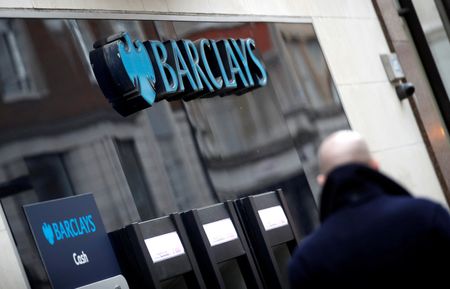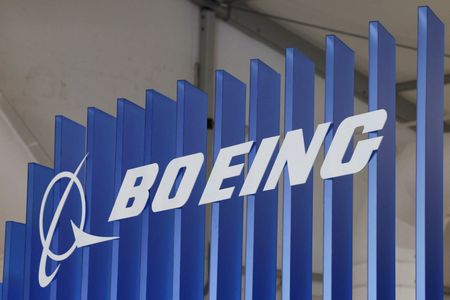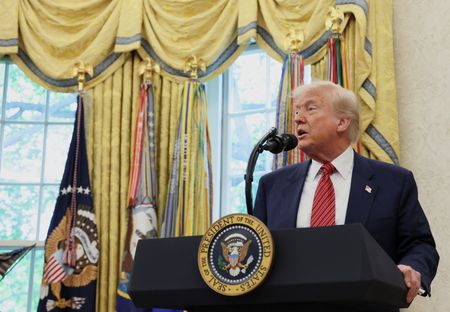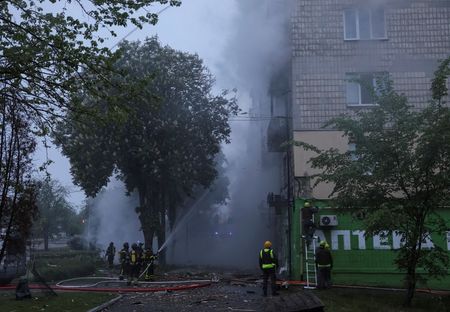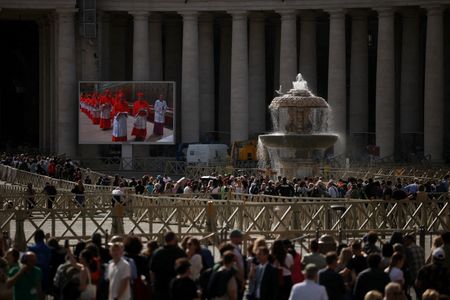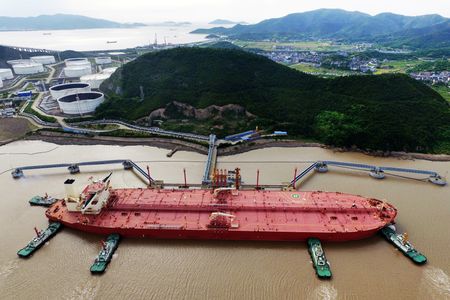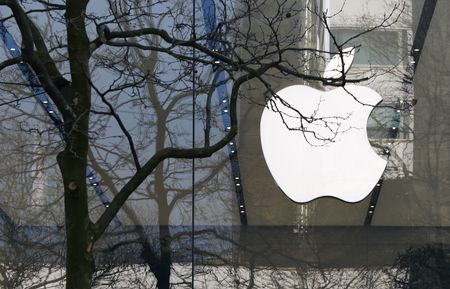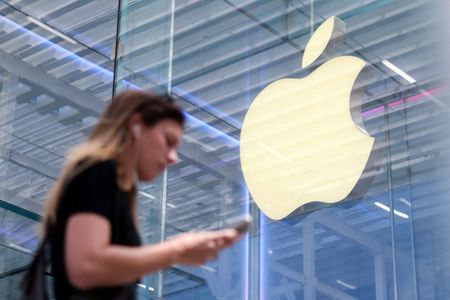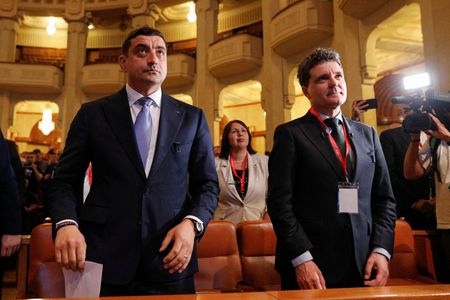By Lawrence White and Sinead Cruise
LONDON (Reuters) – Barclays faced ill-tempered questions from investors about its share price performance and branch closures at its annual meeting on Wednesday, which also drew fresh protests from activists opposed to its alleged provision of financial services to Israeli defence firms.
Dozens of protesters gathered outside the event in Westminster, central London, waving Palestinian flags and holding banners that accused Barclays of “arming Israel” and “banking on genocide”.
Protesters also interrupted chairman Nigel Higgins as he tried to get the meeting underway. “Barclays is a primary dealer in Israel government bonds”, a protester standing on a chair shouted before being carried out by security staff.
Several others joined in, waving Palestinian flags and shouting Free Palestine. “You can all go”, Higgins said, as the group was removed from the room.
Barclays has faced heavy criticism for its alleged relationships with defence firms that produce equipment used by the Israeli Defence Force.
Dozens of its branches have been defaced and vandalised by pro-Palestine activists in recent years and customers have been urged to boycott the bank.
Barclays has repeatedly said its role as a lender is to provide financial services to defence companies, including U.S., UK and European firms supplying products to NATO and other allies.
One shareholder took the opportunity to tell Higgins that the views expressed by the protesters were “not necessarily shared by all of us”.
The bank has said it does not invest its own money in companies that supply weapons used by Israel in Gaza, and it only trades shares in such companies on behalf of clients.
Israel’s ground and air campaign in Gaza – which has killed more than 52,000 Palestinians, according to local health authorities – was triggered by Hamas’ 2023 attack on Israel that killed 1,200 people, mostly civilians, according to Israeli tallies.
BRANCHES
Chief Executive C.S. Venkatakrishnan said Barclays had no plans to announce further branch closures this year or next, in response to a question on its shrinking high street presence.
The bank also fielded questions on its approach to net zero goals, deforestation and financing of carbon-intensive energy production and supply.
Higgins said the bank finances fracking in the United States but was not prepared to invest in the creation of a new fracking industry in Britain.
Another investor called for changes to dividends in place of share buybacks, which he claimed had done little to support retail shareholder confidence in the bank.
“It’s disgusting to see Barclays struggling to break 3 (pounds)”, the investor said.
Barclays shares have risen nearly 11% this year to 296 pence, recovering to their level before U.S. President Donald Trump’s sweeping tariffs on April 2 hit bank stocks worldwide.
Higgins said he believed the majority of retail investors were more bullish about the lender’s prospects, and the executive team was committed to improving the share price.
The bank plans to return at least 10 billion pounds of capital to shareholders between 2024 and 2026, through dividends and share buybacks, with a continued preference for buybacks.
One investor pressed management on how the bank planned to “insulate” itself in the U.S. while Trump was in office, particularly in view of the unpredictable outlook and relations with Russia.
“We look at the totality of the opportunity and [to manage] the risks there as anywhere else in the world,” Venkat said in response.
(Reporting By Lawrence White and Sinead Cruise; Editing by Kirsten Donovan)

